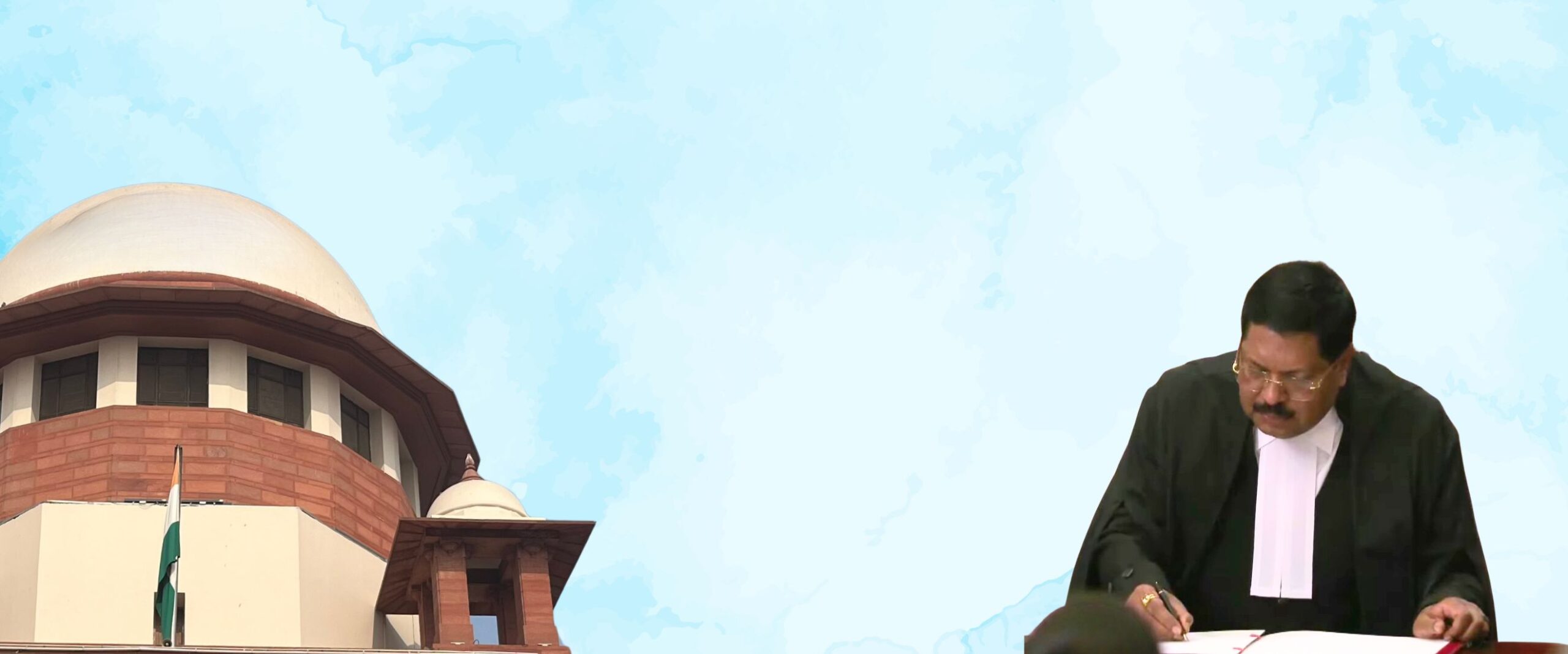Court Data
CJI Gavai’s tenure in numbers
464 judgements and 772 benches place CJI Gavai among the most prolific judges of the current roster

Chief Justice B.R. Gavai officially retires on 23 November, concluding a tenure marked by high judgement output and steady authorship rates across multiple subject areas. CJI Gavai was elevated to the Supreme Court on 13 May 2019, along with CJI-designate Justice Surya Kant.
With his retirement, Justices P.B. Varale and A.S. Chandurkar will be the only two judges hailing from the Bombay High Court.
CJI Gavai authored 464 judgements and was a part of 772 benches during his six year long tenure*. This analysis shows key numerical features of CJI Gavai’s tenure.
Duration of tenure
Figure 1 plots the expected tenure of all sitting judges in the Court at the time of CJI Gavai’s retirement.
CJI Gavai’s 6.5-year long tenure stands well above the current average of 5.1 years. A handful of judges are expected to serve significantly longer tenures than him—Justices J.B. Pardiwala (8.25 years), K.V. Viswanathan (8 years), CJI-designate Justice Kant (7.75 years), V.M. Pancholi (7.75 years), Dipankar Datta (7.25 years), Manoj Misra (7.25 years) and P.S. Narasimha (6.75 years).
Notably, 16 sitting judges will serve an above average tenure at the top court.
Number of judgements authored
Figure 2 highlights the total judgements (blue bar) authored by judges who have served a tenure longer than two years at the Supreme Court. A separate figure (yellow bar) highlights the average judgements authored each year by the sitting judges.
Across his tenure, CJI Gavai authored 464 judgements, placing him at the top of the Court’s authorship spectrum. On an average, he has authored over 70 judgements each year. This is followed by Justice B.V. Nagarathna, who was elevated two years after CJI Gavai, with 333 judgements (78 a year).
CJI-designate Justice Kant, who was appointed on the same day as CJI Gavai, has authored 293 judgements so far with an average of 45 a year.
Bench participation
Figure 3 breaks down the number of judgements authored by CJI Gavai (left bar) and the number of benches he was a part of (middle bar). The right bar indicates the rate of authorship (number of benches where he authored the judgement, expressed in percentage terms).
In his first year as a sitting judge of the Supreme Court, CJI Gavai authored 42 judgements and was a part of 63 benches, with an authorship rate of 66 percent.
In 2020, he authored 45 judgements while participating in 65 benches. This increased his authorship rate to 69 percent.
In 2021, CJI Gavai’s judgement output continued to increase. However, the year also saw a higher bench activity, resulting in a drop in authorship rate to 55 percent.
2022 saw his highest annual authorship with a grand total of 98 judgements. This was also the year where his authorship rate was the highest at 71 percent.
This was followed by a sharp drop to 56 judgements, bringing his authorship rate to 51 percent, the lowest so far. However, CJI Gavai’s bench participation remained high.
2024 marked CJI Gavai’s highest annual bench participation. He presided over 179 benches and authored 95 judgements.
In his final year at the top court, CJI Gavai authored 70 judgements.
Notably, his authorship rate never dipped below 50 percent.
Distribution of Judgements Across Key Subject Areas
CJI Gavai’s subject-wise output shows a similarly consistent but wide engagement across the Court’s core domains. He authored 154 judgements in criminal matters alone, 53 judgements in service matters and 44 in civil disputes. Direct taxation accounted for 34 judgements, while property matters added another 26.
*data collected from Manupatra on 22 November 2025